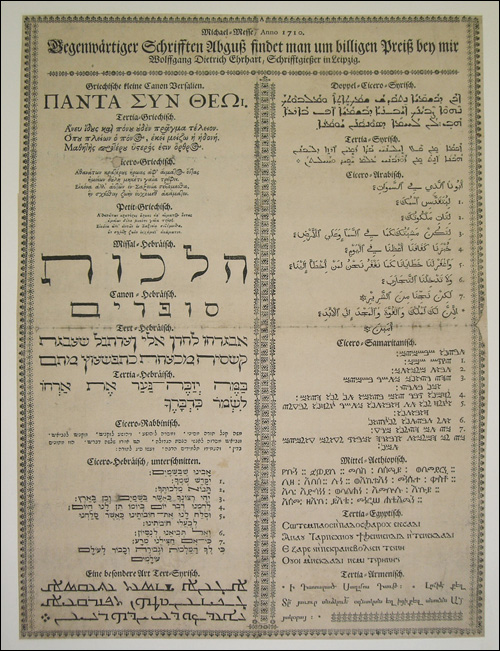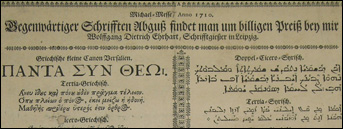Yesterday I saw a peculiar type specimen sheet at the University library in Frankfurt. Although the specimen, printed in Leipzig in 1710, contained samples in Greek, Hebrew, Syriac, Arabic, Samaritan, Ethiopian, Coptic, and Armenian—all of which were surrounded by Fraktur letters and floral ornaments—the part I found particularly interesting was its headline.

The text reads: Gegenwärtiger Schrifften Abguß findet man um billigen Preiß bey mir Wolfgang Dietrich Ehrhart, Schrifftgießer in Leipzig. In contemporary German, that would probably be written, »gegenwärtiger Schriften findet man um billigsten Preis bei mir, Wolfgang Dietrich Ehrhart, Schriftgießer in Leipzig.«
My English translation: The cheapest priced contemprary typefaces are to be found with me / I have the cheapest selection of contemporary typefaces / Wolfgang Dietrich Ehrhart, typefounder in Leipzig [circa 1710].
In other words, when writing his copy, Erhart did not call attention to the quality of his types, nor the extendedness of their character sets. Why should customers buy from him? Simple: he sold new fonts, at low prices.
